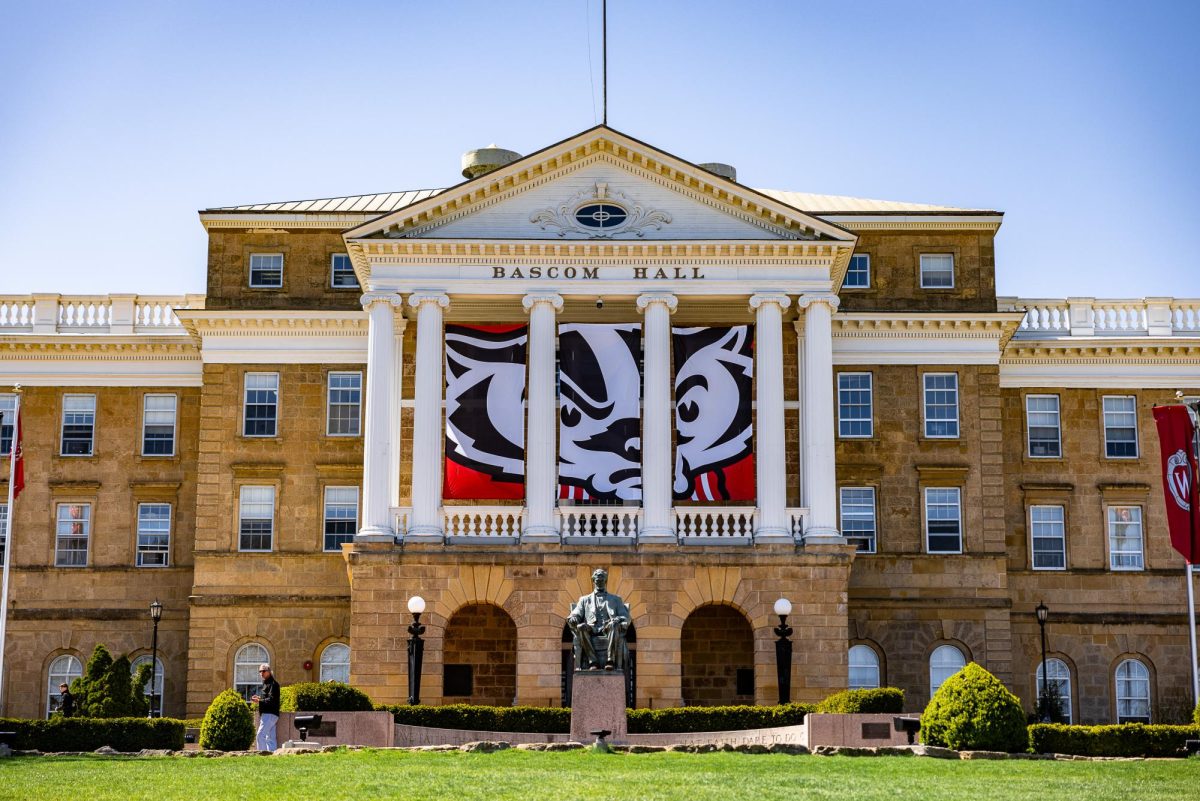
While Wisconsin’s economy, job growth efforts, education funding and issues with health care tend to take center stage in debates over the state’s key problems, one issue is costing the state both in health and expenses.
Last year alone, the state paid 10 percent of the proposed two-year, $68 billion dollar budget, on excessive alcohol consumption costs. It remains the nation’s leader in binge drinking, according to a mid-March report from Health First Wisconsin.
The report said binge drinkers in Wisconsin average nine drinks per occasion. Additionally, America’s Health Rankings 2012 statistics said the state leads the U.S. with nearly a quarter of its adults drinking excessively in the past 30 days. Last August’s National Institute of Alcohol Abuse and Alcoholism report identified Wisconsin as one of 18 states where citizens drink at least 2.5 gallons of ethanol per capita.
University Health Services Director Sarah Van Orman explained in an email to The Badger Herald that this list of statistics goes on and on.
“On nearly every measure of problematic alcohol use, Wisconsin is the highest in the nation,” she said.
City attempts new measures
However, city and state officials are proposing legislation that could have mixed results in alleviating this unhealthy and expensive problem.
City of Madison Ald. Mike Verveer, District 4, said he introduced a bill to City Council March 19 intended to continue cracking down on alcohol sale to chronic drinkers for two more years. To save city costs, he noted the updated bill would remove members from a “habitually intoxicated persons” list after six months without an incident. List members are currently reviewed on a three-month schedule.
Troublemaking daytime street alcoholics with a history of substance abuse or mental illness are the target of the legislation, rather than University of Wisconsin students, according to Verveer.
“The ordinance that we’re talking about never had anything to do with students in my mind,” he said. “Students aren’t causing problems or panhandling.”
The bill will be considered at the April 17 Alcohol Review Licensing Committee meeting and will likely be approved at the April 30 City Council meeting, Verveer said.
UW students lead in binge drinking behavior
While UW students are not the focus of this city initiative, however, Van Orman said UW students binge drink at a higher rate than college students nationwide. UW was fifth this year in Playboy Magazine’s annual top party school rankings.
“We also have abundant evidence that the level of excessive drinking among students at Madison far exceeds that of college students nationally and at other system schools,” Van Orman said.
She noted about 40 percent of college students report binge drinking in the past 30 days nationally, but this figure inflates to about 50 percent for UW System students and more than 60 percent at the Madison flagship.
Van Orman is collaborating with Alcohol Policy Group members – including UW’s dean of students and representatives from Associated Students of Madison, University Housing, Wisconsin Union, UW Police Department, the Provost’s office, UW Athletics and city officials – to create an online First Year Alcohol Education Program.
“The programs focus on educating students about how alcohol impacts them physically and mentally and how to reduce its negative effects,” she said, adding her Alcohol Policy Group is currently choosing a commercially available product for the program. “While not focusing on abstinence, they are appropriate for students who choose not to use alcohol as well.”
Responsible Action Bill to take center stage
While the head of UHS endorsed Health First Wisconsin’s recommendations for improving the state’s alcohol problem, Ald. Scott Resnick, District 8, said prior attempts at reducing alcohol taxes, along with bar and liquor store density, have proven to be failures.
Resnick endorsed plans to enact an alcohol education program to boost student awareness, but said increased city regulation is not the answer.
“When it comes to increased enforcement or crackdowns, I don’t think they will have a positive effect,” he said. “We’ve tried this for several years on State Street in particular … and the entire attempt was to decrease the number of bars on State Street. If you look at the statistics when it comes to campus safety, the report is more than inconclusive.”
Resnick added increasing bar raids and house party enforcement has made students afraid to call the police when friends are in danger and need to go to the detoxification center. In turn, Resnick said he is “very supportive” of the Responsible Action bill being proposed by Sen. Fred Risser, D-Madison.
The bill would allow intoxicated underage drinkers who witness others in danger of overintoxication, physical harm or sexual assault to call the police and report these instances without fear of receiving alcohol citations themselves, according to Rep. Joan Ballweg, R-Markesan.
Ballweg is currently drafting the legislation with Risser and plans to introduce it to the Assembly as he introduces it to the Senate.
“The whole idea is to make sure that if people are in trouble, they will be able to get the help they need,” Ballweg said. “It’s not trying to help people to avoid the law, but to try to avoid tragic incidents.”
ASM Legislative Affairs Chair Dan Statter and Vice Chair Morgan Rae helped come up with the idea for drafting the bill and have met with both legislators to push it into writing.
They have also gained support from 31 Dane County Supervisors, UW’s chancellor and dean of students and student government leaders from other UW System schools.
“We’re really excited about the process and look to pick up on the lobbying efforts right after the budget is signed,” Statter said.
















